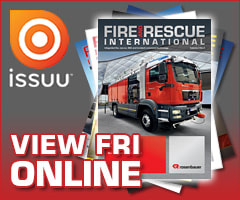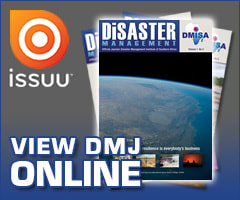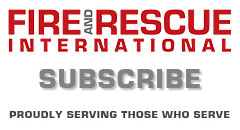- Home
- Magazines
-
Newsletters
- 19 July 2024
- 12 July 2024
- 5 July 2024
- 28 June 2024
- 14 June 2024
- 7 June 2024
- 31 May 2024
- 24 May 2024
- 17 May 2024
- 10 May 2024
- 3 May 2024
- 26 April 2024
- 19 April 2024
- 12 April 2024
- 22 March 2024
- 15 March 2024
- 8 March 2024
- 1 March 2024
- 23 February 2024
- 16 February 2024
- 9 February 2024
- 26 January 2024
- 19 January 2024
- 12 January 2024
- 22 December 2023
- 1 December 2023
- 24 November 2023
- 10 November 2023
- 3 November 2023
- 27 October 2023
- 20 October 2023
- 13 October 2023
- 6 October 2023
- 29 September 2023
- 22 September 2023
- 15 September 2023
- 8 September 2023
- 25 August 2023
- 18 August 2023
- 11 August 2023
- 4 August 2023
- 28 July 2023
- 21 July 2023
- 14 July 2023
- 7 July 2023
- 30 June 2023
- 23 June 2023
- 15 June 2023
- 2 June 2023
- 26 May 2023
- 19 May 2023
- 12 May 2023
- 5 May 2023
- 28 April 2023
- 21 April 2023
- 14 April 2023
- 6 April 2023
- 31 March 2023
- 24 March 2023
- 17 March 2023
- 10 March 2023
- 3 March 2023
- 24 February 2023
- 17 February 2023
- 10 February 2023
- 3 February 2023
- 27 January 2023
- 13 January 2023
- 22 December 2022
- 15 December 2022
- 9 December 2022
- 2 December 2022
- 25 November 2022
- 18 November 2022
- 11 November 2022
- 4 November 2022
- Advertising
- Subscribe
- Articles
-
Galleries
- AOSH Firexpo 2024
- Midvaal Fit to Fight Fire 2024
- WoF KNP 2023 Gallery
- TFA 2023 Gallery
- DMISA Conference 2023
- ETS 2023 Gallery
- Drager Fire Combat and Rescue Challenge 2023
- AOSH Firexpo 2023
- Midvaal Fit to Fight Fire
- WC IFFD 2023
- NMU 13th Fire Management Symposium 2022
- JOIFF Africa Conference 2022
- ETS 2022 Gallery
- TFA 2022 Gallery
- IFFD 2018
- SAESI
- TFA
- WRC 2018
- WRC 2019
- A-OSH/Securex
- IFE AGM 2019
- ETS Ind Fire Comp Nov 2019
- ETS Challenge 2021
- Drager launch
- Drager Fire Combat and Rescue Challenge 2022
- TFA
- Contact
- Home
- Magazines
-
Newsletters
- 19 July 2024
- 12 July 2024
- 5 July 2024
- 28 June 2024
- 14 June 2024
- 7 June 2024
- 31 May 2024
- 24 May 2024
- 17 May 2024
- 10 May 2024
- 3 May 2024
- 26 April 2024
- 19 April 2024
- 12 April 2024
- 22 March 2024
- 15 March 2024
- 8 March 2024
- 1 March 2024
- 23 February 2024
- 16 February 2024
- 9 February 2024
- 26 January 2024
- 19 January 2024
- 12 January 2024
- 22 December 2023
- 1 December 2023
- 24 November 2023
- 10 November 2023
- 3 November 2023
- 27 October 2023
- 20 October 2023
- 13 October 2023
- 6 October 2023
- 29 September 2023
- 22 September 2023
- 15 September 2023
- 8 September 2023
- 25 August 2023
- 18 August 2023
- 11 August 2023
- 4 August 2023
- 28 July 2023
- 21 July 2023
- 14 July 2023
- 7 July 2023
- 30 June 2023
- 23 June 2023
- 15 June 2023
- 2 June 2023
- 26 May 2023
- 19 May 2023
- 12 May 2023
- 5 May 2023
- 28 April 2023
- 21 April 2023
- 14 April 2023
- 6 April 2023
- 31 March 2023
- 24 March 2023
- 17 March 2023
- 10 March 2023
- 3 March 2023
- 24 February 2023
- 17 February 2023
- 10 February 2023
- 3 February 2023
- 27 January 2023
- 13 January 2023
- 22 December 2022
- 15 December 2022
- 9 December 2022
- 2 December 2022
- 25 November 2022
- 18 November 2022
- 11 November 2022
- 4 November 2022
- Advertising
- Subscribe
- Articles
-
Galleries
- AOSH Firexpo 2024
- Midvaal Fit to Fight Fire 2024
- WoF KNP 2023 Gallery
- TFA 2023 Gallery
- DMISA Conference 2023
- ETS 2023 Gallery
- Drager Fire Combat and Rescue Challenge 2023
- AOSH Firexpo 2023
- Midvaal Fit to Fight Fire
- WC IFFD 2023
- NMU 13th Fire Management Symposium 2022
- JOIFF Africa Conference 2022
- ETS 2022 Gallery
- TFA 2022 Gallery
- IFFD 2018
- SAESI
- TFA
- WRC 2018
- WRC 2019
- A-OSH/Securex
- IFE AGM 2019
- ETS Ind Fire Comp Nov 2019
- ETS Challenge 2021
- Drager launch
- Drager Fire Combat and Rescue Challenge 2022
- TFA
- Contact
Follow us
First responders and alcohol: how much is too much?
It’s become such a cliché. The fire fighter unwinding after a rough day by knocking back a few beers. The police officer stopping at the local “cop bar” to take the edge off after a critical incident. Corrections workers and EMTs pouring a drink to help them relax after a difficult shift. We see it in movies and on television, and we see it in our own departments and agencies. Most people know at least one person who is a “functional alcoholic.” And anyone who works in public safety has undoubtedly had to deal with people who are significantly less than functional due to their alcohol use.
A 2021 Gallup poll showed that 60 percent of US adults consume alcoholic beverages. It seems almost counter-intuitive, but this is actually a drop from 65 percent right before the pandemic and also down from the high-water mark of 71 percent in the early 1980s. According to the Centres for Disease Control (CDC), about five percent of US adults, both men and women, regularly engage in heavy drinking, which is defined as “consumption of an average of more than 14 alcoholic drinks per week for men or more than seven drinks per week for women in the past year.” It’s this number, more than the overall rate of drinkers, that is cause for concern. Alcohol is killing us The United States has long struggled with the impacts of alcohol on society. From the passage of the 18th Amendment in 1919, which made Prohibition the law of the land, to the 1933 repeal of Prohibition and beyond, Americans have dealt with changing attitudes, legislation and regulations regarding the consumption of alcoholic beverages. A recent article published in the Journal of the American Medical Association drew some sobering conclusions about the impact of alcohol use in the United States. In “Estimated deaths attributable to excessive alcohol use among us adults aged 20 to 64 years, 2015 to 2019,” lead authors Marissa B Esser, Gregory Leung and Adam Sherk concluded that “excessive alcohol consumption accounted for 12,9 percent of total deaths among adults aged 20 to 64 years and 20,3 percent of deaths among adults aged 20 to 49 years.” This means that roughly one in eight deaths of adults 20 to 64 years old can be directly linked to drinking. Among those aged 20 to 49, the rate is closer to one in five. This puts alcohol-related illness and accident right up there with heart disease and cancer as a major contributor to mortality in the US population. If you’re in a first responder role and find yourself needing help, you likely have multiple avenues for support. Alcohol and first responders Which brings us back to alcohol use among first responders. According to the Yale School of Medicine, some of the major risk factors for developing an alcohol use disorder include:
That last point may be the key. Since up to 80 percent of all first responders regularly experience on-the-job trauma, it should come as no surprise that people who work in public safety develop PTSD at higher-than-average rates. In fact, studies have shown PTSD impacts:
Of course, being at risk for PTSD or even an actual diagnosis,does not guarantee that a person will develop an alcohol use disorder. Other factors, as well as professional and family support systems, combined with individual personalities, behaviours and genetics, are also major contributors. Do I have a drinking problem? Not every person who drinks has a drinking problem, so it’s up to each individual to determine whether their own drinking might be out of control. A simple self-assessment can help. Thinking back to the previous 12 months, have you:
If you found yourself answering yes to any of these questions, you should consider further evaluating whether to change your personal pattern of alcohol consumption. In addition, if you know a co-worker or family member who needs help, consider approaching them in a safe, private setting and bringing up the topic in a way that is both non-confrontational and free of judgment. Getting help The good news is that we’ve come a long way as a society in developing resources for people who need help with their drinking. If you’re in a first responder role and find yourself needing help, you likely have multiple avenues for support. Peer support team. If your agency has a peer support team, you can go to them for help. Most peer support teams operate under a policy of strict confidentiality, so you can be confident that your request will be kept private. Note: Cordico users can access their peer support team by tapping on the Peer Support link on the main Cordico screen. Employee assistance programme. Your agency may offer an employee assistance programme (EAP) directly or it may be a feature of your health plan. Most EAPs offer confidential, no-cost counselling and referrals for a variety of issues, including alcohol use disorders. Note: Cordico users can access their EAP through the Employee Assistance Programme link on the main screen. Therapists. Many public safety agencies offer therapy services to employees who need it, though many first responders are understandably hesitant to ask for help from in-house and affiliated providers due to worries about revealing personal struggles to your employer. You may be able to get a referral through your agency’s EAP or recommendations from friends and co-workers. If your agency offers a check-in program with the option of follow-up therapy sessions, you’ve got the perfect setup for getting help. Alcoholics Anonymous (AA). The original 12-step programme, Alcoholics Anonymous has provided support for millions of people worldwide who want to overcome their addictions and live a sober life. Depending on where you live, you may even find there’s an AA group composed of first responders like yourself. (Many people feel more comfortable working through their issues with peers with similar challenges.) It just takes some asking around. You can get more information by visiting aa.org. Cordico. If your agency uses Lexipol’s Cordico wellness app, you have even more resources to get help. The app’s new alcohol module provides a wealth of information about how drinking impacts your physical and mental well-being, and how you can moderate your alcohol intake to prevent overuse. Of course, the tried-and-true rules about addiction are still very much a factor. The most important step to solving the problem of excessive alcohol consumption is to recognize that the problem exists in the first place. The next requirement is a willingness to get better. After that, it’s up to you and your support structure to make the necessary changes to either moderate or eliminate your alcohol use and regain control of your sobriety. Source: Cordico |
Quick navigation
Social
|
Who are we?FRI Media (Pty) Ltd is an independent publisher of technical magazines including the well-read and respected Fire and Rescue International, its weekly FRI Newsletter and the Disaster Management Journal. We also offer a complete marketing and publishing package, which include design, printing and corporate wear and gifts. |
Weekly FRI Newsletter |
© Copyright 2018 Fire and Rescue International. All Rights Reserved.






